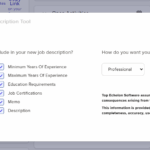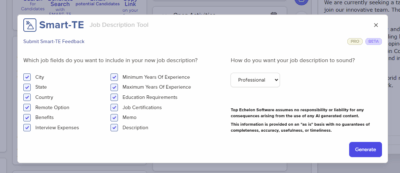Employee empowerment is a management strategy that involves giving employees the autonomy and authority to make decisions and take actions that affect their work. This means providing employees with the tools, resources, and support they need to make decisions and take ownership of their work, without the need for constant supervision or micromanagement.
In essence, employee empowerment involves delegating decision-making power to employees and giving them the freedom to act on their own initiative. This can be achieved through a variety of means, such as training, coaching, and mentoring, as well as by providing employees with access to information, technology, and other resources that enable them to do their jobs effectively.
The goal of employee empowerment is to create a more engaged and motivated workforce, where employees feel invested in the success of the organization and are empowered to take ownership of their work. When employees are given the autonomy and authority to make decisions and take actions, they are more likely to be creative, innovative, and resourceful, which can lead to improved performance, increased job satisfaction, and higher levels of commitment to the organization.
Employee empowerment is an important management strategy for organizations that want to create a culture of trust, collaboration, and accountability. By giving employees the power to make decisions and take ownership of their work, organizations can create a more engaged and motivated workforce that is better equipped to meet the challenges of today’s rapidly changing business environment.
Benefits of Employee Empowerment
People are an organization’s greatest asset. Without people, the organization can not be successful. However, employers need more than just “butts in their seats.” They need productive, high-performing employees who will make a noticeable difference, including a difference on the organization’s bottom line.
How does this work? Below are X benefits of employee empowerment:
#1—Increased motivation and job satisfaction
Employee empowerment can lead to increased motivation and job satisfaction among employees. When employees feel empowered, they are more likely to take ownership of their work and feel invested in the success of the team. This can lead to a greater sense of fulfillment and purpose in their work, which can translate into increased motivation and job satisfaction.
Empowered employees are also more likely to be engaged in their work. They are more likely to take initiative, seek out new challenges, and be proactive in finding solutions to problems. This can lead to a sense of accomplishment and pride in their work, which can further increase motivation and job satisfaction.
In addition, when employees are empowered, they are more likely to feel valued and respected by their organization. This can lead to greater loyalty and commitment to the company, as well as a sense of pride in their affiliation with the organization. This can further increase job satisfaction and motivation, as employees feel that their work is meaningful and valued.
#2—Improved creativity and innovation
Employee empowerment can lead to improved creativity and innovation within an organization. When employees are given greater autonomy and control over their work, they are more likely to feel invested in their work and motivated to come up with new ideas and solutions. This can lead to a culture of innovation, where employees are encouraged to experiment, take risks, and think outside the box.
Empowered employees are also more likely to feel comfortable sharing their ideas with their colleagues and managers. When employees feel that their ideas are valued and that they have the support of their colleagues and superiors, they are more likely to take risks and suggest new and innovative ideas. This can lead to a more collaborative and creative work environment, where employees feel comfortable brainstorming and collaborating on new projects.
In addition, when employees are empowered, they are more likely to take ownership of their work and feel invested in the success of their projects. This can lead to increased motivation and productivity, as well as a willingness to go above and beyond to come up with new and innovative solutions.
#3—Higher productivity and efficiency
Employee empowerment is a process that involves providing employees with the tools, resources, and authority they need to make decisions, solve problems, and take ownership of their work. When employees are empowered, they feel more engaged, motivated, and committed to their work, which can lead to higher productivity and efficiency.
Empowered employees are more likely to take ownership of their work and make decisions that align with the company’s goals and objectives. They are also more likely to be innovative, creative, and proactive in finding ways to improve their work processes, which can lead to increased efficiency. Empowered employees also have a greater sense of job satisfaction and are less likely to experience burnout, which can impact their productivity and performance.
When employees are given the authority to make decisions and solve problems, they can act quickly and efficiently, without the need for constant oversight or micromanagement. This can free up managers and supervisors to focus on other tasks, which can also lead to increased productivity and efficiency.
Empowerment can also lead to improved communication and collaboration within teams. When employees are given a voice and encouraged to share their ideas and opinions, they are more likely to work together to find solutions and achieve common goals. This can lead to increased teamwork, better decision-making, and improved overall performance.
#4—Improved customer service
Employee empowerment refers to the practice of giving employees the autonomy and authority to make decisions and take actions that are in the best interest of the company and its customers. One of the most significant benefits of employee empowerment is improved customer service.
When employees are empowered to make decisions and take action on behalf of the company, they are better able to respond to customer needs and resolve issues quickly and efficiently. Empowered employees feel more ownership over their work and are more invested in providing excellent customer service. This translates into higher levels of customer satisfaction and loyalty.
Empowered employees are also better equipped to handle complex or unusual customer requests, as they have the flexibility and authority to make decisions and take action without needing to escalate the issue to a higher level of management. This not only leads to faster resolution times but also ensures that customers feel valued and heard, which can be a significant factor in retaining their business.
Moreover, empowering employees to make decisions and take action can also lead to more creative and innovative solutions to customer problems. When employees are encouraged to think outside the box and come up with unique solutions, they can often provide customers with unexpected and memorable experiences that set the company apart from its competitors.
#5—Higher employee retention
Employee empowerment is a powerful tool for improving employee retention rates. Empowered employees tend to feel more engaged, motivated, and committed to their work, which can lead to a greater sense of job satisfaction and loyalty to their employer.
Empowered employees are given the opportunity to take ownership of their work and make decisions that align with the company’s goals and objectives. They are also more likely to be innovative, creative, and proactive in finding ways to improve their work processes, which can lead to increased job satisfaction and a sense of fulfillment. When employees feel that their contributions are valued and that they have a say in the direction of the company, they are more likely to feel invested in their work and remain loyal to their employer.
Empowerment can also lead to a more positive work environment, which can have a significant impact on employee retention. When employees are given the opportunity to contribute their ideas and opinions and are encouraged to collaborate with their colleagues, they are more likely to feel valued and supported in their work. This can lead to a sense of camaraderie and a feeling of belonging, which can increase employee retention rates.
Furthermore, when employees are empowered, they are more likely to develop their skills and expertise, which can lead to career growth and advancement opportunities within the company. This can be a powerful incentive for employees to remain with their employer over the long term.
Why giving your team autonomy is good for business
Remember what I mentioned earlier about productivity and profitability? Making money is the bottom line—both literally and figuratively—for many organizations. (There are, of course, the non-profit and not-for-profit organizations.) However, I’m going to assume that you represent a FOR-profit organization, and as thus, below are five reasons why giving your team autonomy and empowering them is good for business:
#1—Improved decision-making: Giving your team autonomy can lead to improved decision-making. When employees are given the authority to make decisions, they can respond more quickly to customer needs and make decisions that are aligned with the organization’s goals and values. This can lead to improved efficiency and better outcomes.
#2—Increased innovation: Giving your team autonomy can also lead to increased innovation. When employees are given the freedom to make decisions and take action, they are more likely to come up with new and innovative ideas. This can lead to improved products or services and a competitive advantage for the organization.
#3—Better employee engagement: Giving your team autonomy can also lead to better employee engagement. When employees are given the authority to make decisions and take ownership of their work, they are more likely to feel invested in their jobs and take pride in their work. This can lead to higher levels of job satisfaction and motivation.
#4—Improved customer service: Giving your team autonomy can also lead to improved customer service. When employees are given the authority to make decisions and take action, they can respond more quickly to customer needs and provide better service. This can lead to improved customer satisfaction and loyalty.
#5—Higher employee retention: Giving your team autonomy can also lead to higher levels of employee retention. When employees feel that they have control over their work and can make decisions, they are more likely to feel invested in their jobs and less likely to leave the organization. This can lead to lower turnover rates and a more stable workforce.
Tips for empowering your team
Empowering your team in the workplace is critical to the success of any organization. When team members are empowered, they are more motivated, engaged, and productive. They are also more likely to take ownership of their work, make decisions, and solve problems, which can lead to better outcomes for the business. In this article, we will discuss some tips for empowering your team in the workplace.
Set clear goals and expectations
One of the most important things you can do to empower your team is to set clear goals and expectations. This includes defining what success looks like, outlining key performance indicators (KPIs), and establishing deadlines for achieving these goals. When everyone on the team understands what they are working towards, they are more likely to be motivated and focused.
In addition, be sure to communicate your expectations for how team members should work together. This includes things like communication styles, meeting etiquette, and accountability. By setting clear expectations, you can ensure that everyone is on the same page and working towards the same goals.
Encourage open communication
Open communication is essential for a successful team. Encourage your team members to share their thoughts and ideas openly, without fear of criticism or reprisal. Create a safe environment where team members feel comfortable sharing feedback and suggestions, and be sure to listen carefully to what they have to say.
Regular check-ins and one-on-one meetings are also important for fostering open communication. Use these opportunities to discuss progress, identify challenges, and brainstorm solutions. Be sure to actively listen to your team members and ask questions to show that you are engaged and interested in their ideas.
Provide opportunities for growth and development
Empowering your team also means providing opportunities for growth and development. This includes offering training and development programs, mentorship opportunities, and stretch assignments. When team members feel like they are growing and developing in their roles, they are more likely to feel motivated and engaged.
In addition, be sure to provide regular feedback on performance and opportunities for improvement. This can include both positive feedback and constructive criticism. By providing regular feedback, you can help team members to develop their skills and become more effective in their roles.
Delegate responsibilities
Delegating responsibilities is an important part of empowering your team. This means giving team members the authority and responsibility to make decisions and take action. When team members feel trusted and empowered to make decisions, they are more likely to take ownership of their work and feel invested in the success of the team.
Be sure to delegate tasks based on each team member’s strengths and abilities. This can help to build confidence and increase the likelihood of success. In addition, be sure to provide the necessary resources and support to help team members succeed.
Celebrate successes
Recognizing and celebrating successes is an important part of empowering your team. This includes both individual and team successes. Be sure to publicly acknowledge team members’ accomplishments, and celebrate milestones and achievements as a team.
Celebrating successes can help to boost morale and increase motivation. It also helps team members to feel valued and appreciated, which can lead to increased engagement and loyalty.
Foster a positive team culture
Fostering a positive team culture is critical to empowering your team. This means creating an environment where team members feel valued, respected, and supported. Encourage collaboration, open communication, and teamwork, and be sure to recognize and reward behaviors that align with these values.
In addition, be sure to address any negative behaviors or attitudes that may be undermining the team’s culture. This includes things like gossip, negativity, and lack of accountability. By fostering a positive team culture, you can help to build a strong and empowered team.
Lead by example
Finally, one of the most important things you can do to empower your team is to lead by example. As a leader, your behavior and actions set the tone for the team. When you model the behaviors and values that you want to see in your employees, you create a culture of excellence and accountability. By leading by example, you can inspire your employees to do their best work, take ownership of their responsibilities, and strive for continuous improvement. When employees see their leader modeling the behavior they want to see, they are more likely to follow suit, which can lead to a more engaged, motivated, and empowered team.
Employee empowerment and talent management software
Employee empowerment is a management philosophy that aims to give employees greater autonomy and control over their work, as well as greater access to information, resources, and decision-making power. This approach can lead to increased job satisfaction, motivation, and productivity, as well as improved employee retention rates. One tool that can be used to support employee empowerment is talent management software.
Talent management software refers to a range of applications and platforms designed to help organizations attract, develop, and retain their employees. These tools can include everything from recruitment and onboarding software, to performance management and learning management systems. By leveraging these tools, organizations can create a more structured and strategic approach to talent management, which can help to align employee goals with organizational objectives.
One key benefit of talent management software is that it can support employee empowerment by providing employees with greater visibility into their career development paths. This can include access to training and development opportunities, as well as tools for setting and tracking performance goals. By empowering employees to take ownership of their own development, organizations can create a more engaged and motivated workforce.
Another benefit of talent management software is that it can support managers in their efforts to empower their employees. For example, by providing managers with greater visibility into employee performance and development, these tools can help managers to identify opportunities for coaching and support. This can help to build stronger relationships between managers and employees, as well as create a more collaborative and supportive work environment.
Employee empowerment and talent management software go hand-in-hand. By empowering employees to take ownership of their own development, organizations can create a more engaged and motivated workforce. And by leveraging talent management software to support this approach, organizations can create a more structured and strategic approach to talent management, which can help to align employee goals with organizational objectives.








